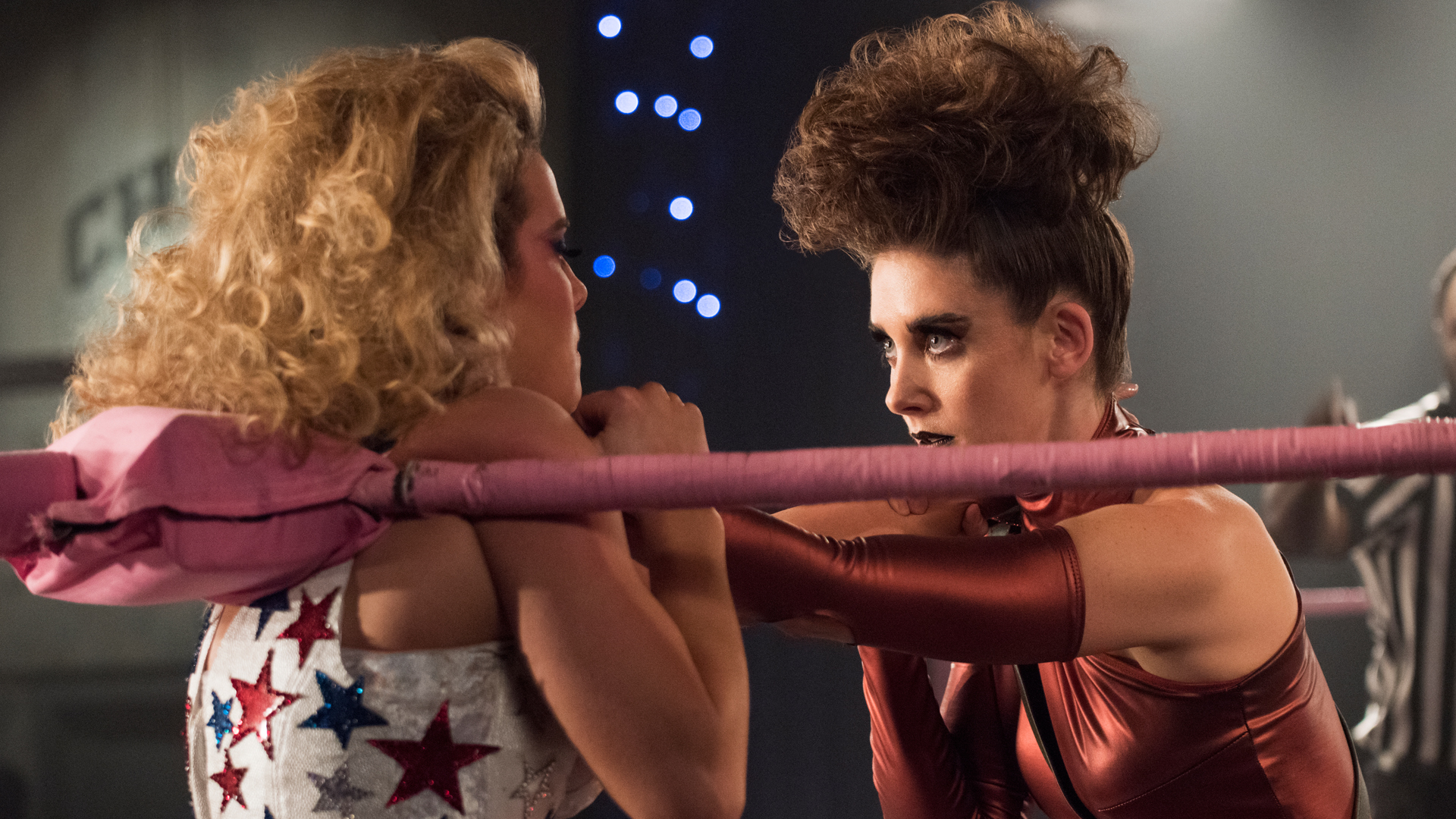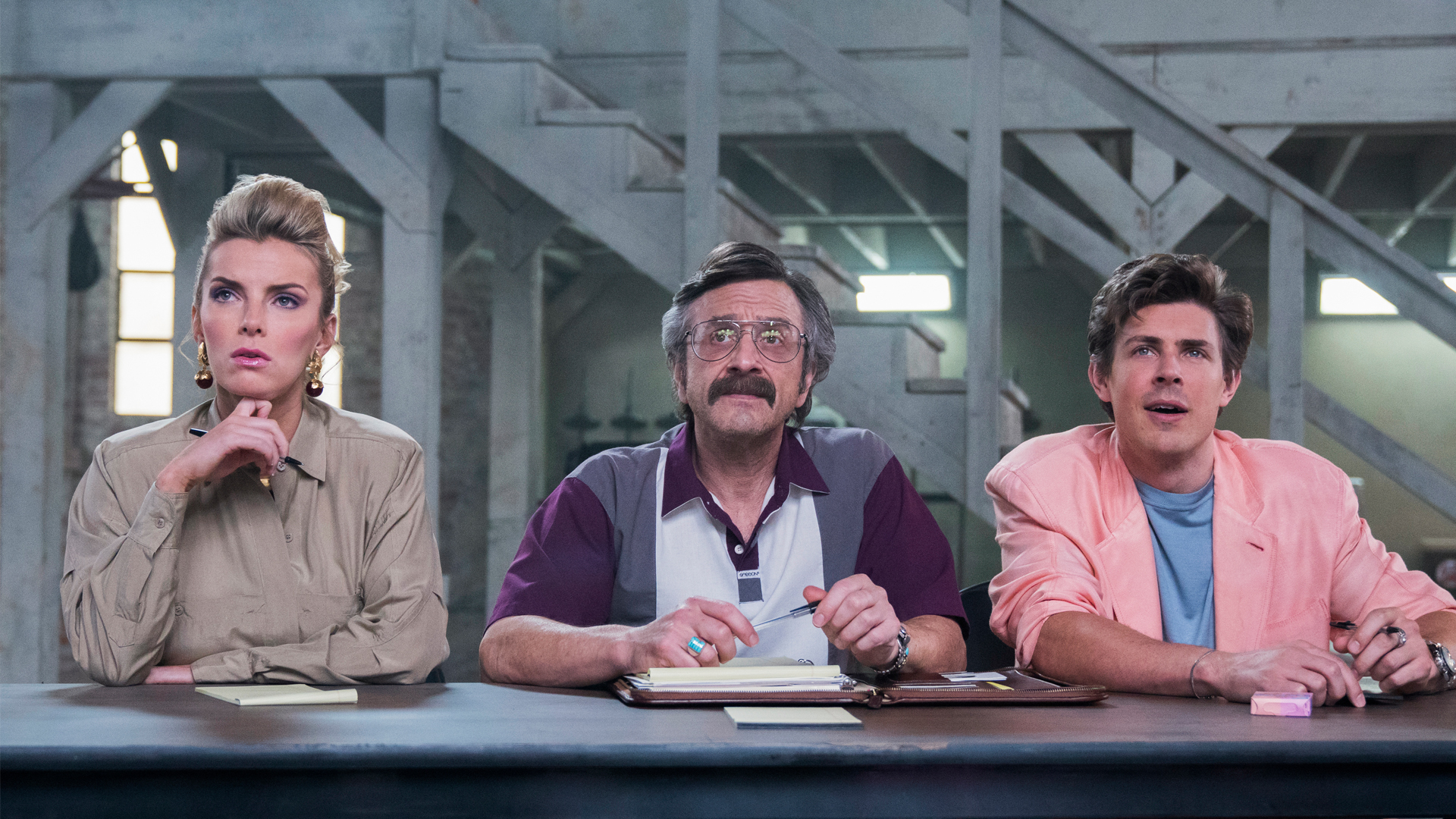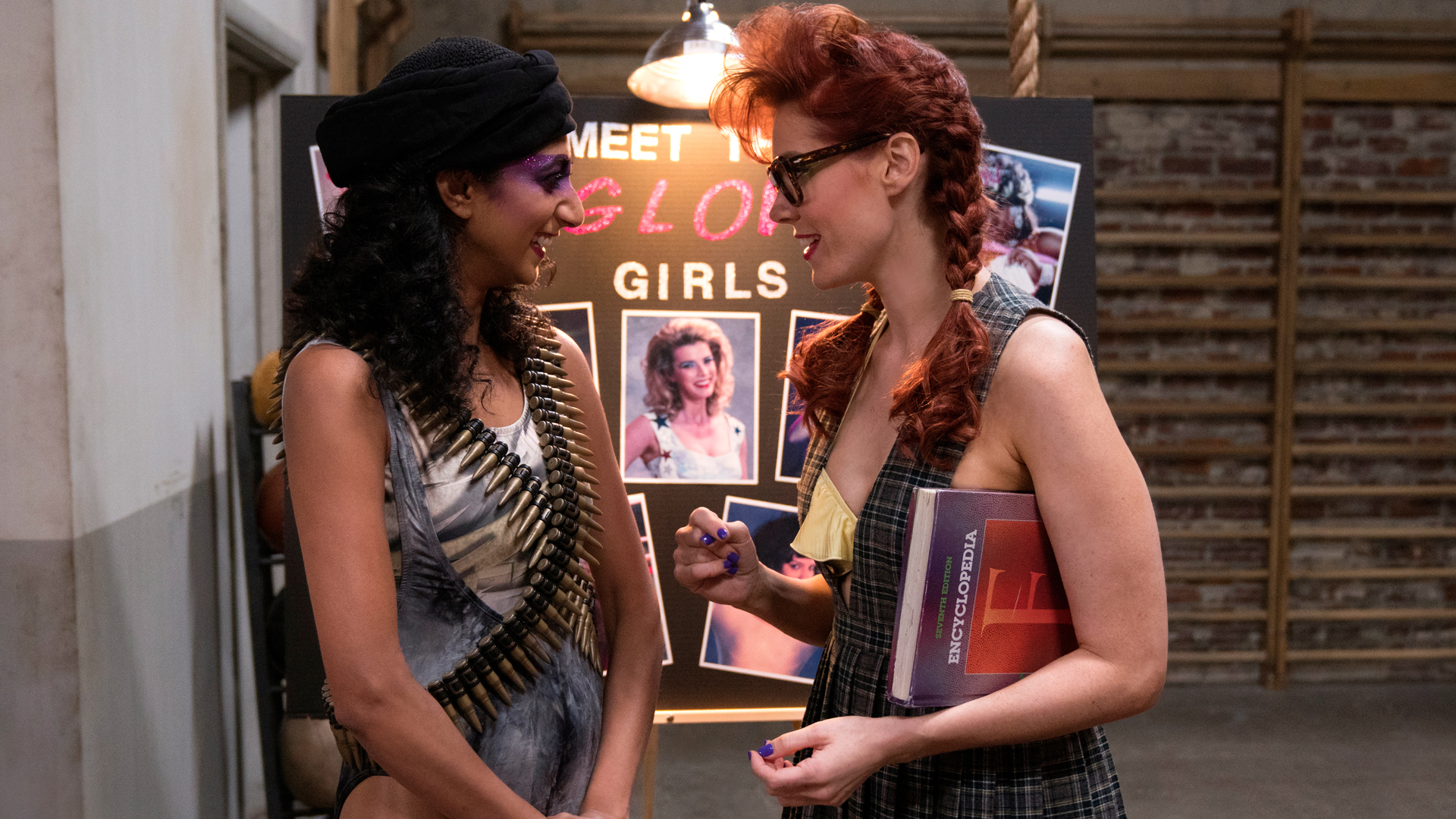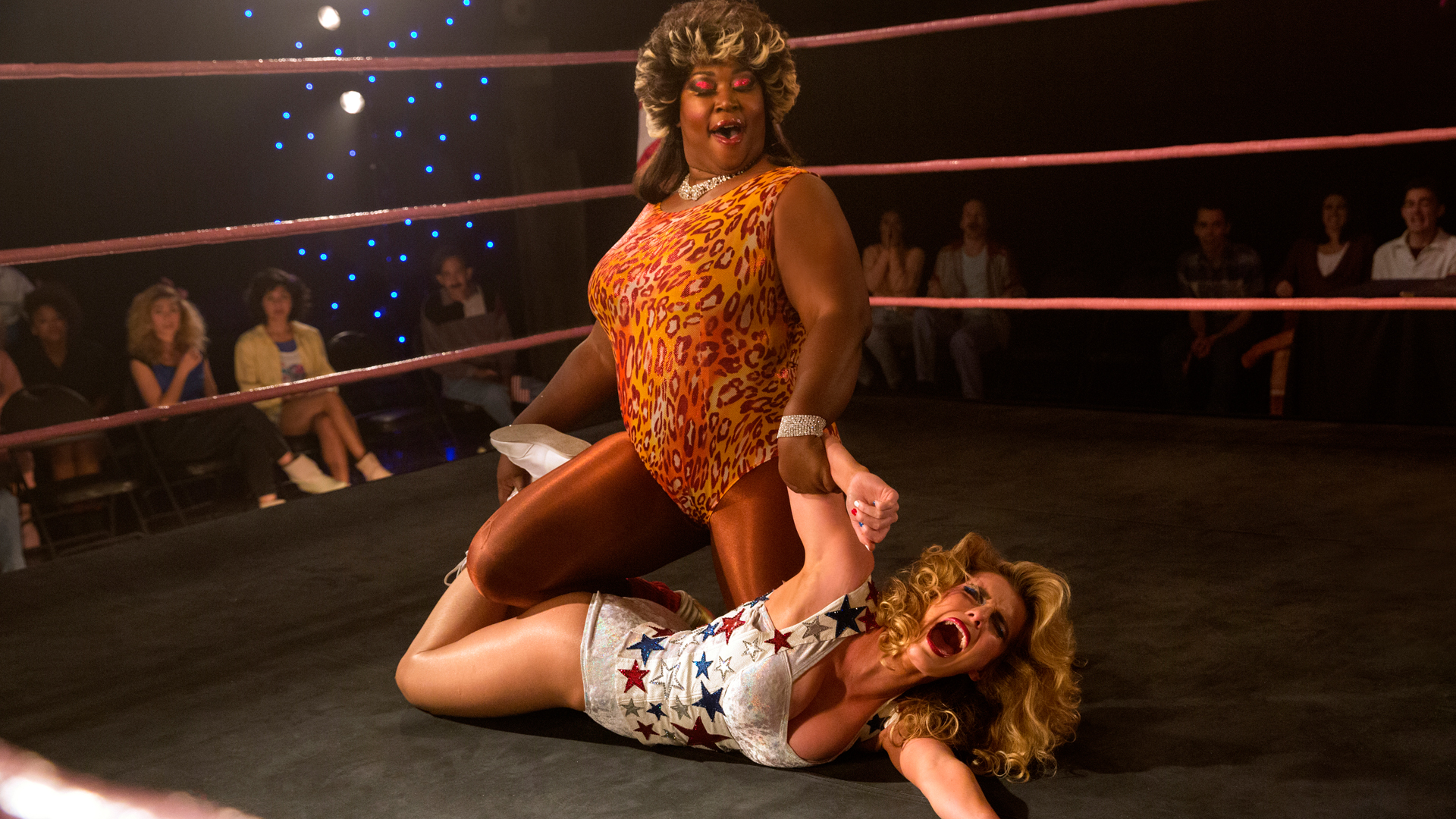GamesRadar+ Verdict
Gloriously funny, occasionally heart-breaking, and always entertaining - GLOW season 2 is essential TV
Why you can trust GamesRadar+
GLOW season 2 is one of the best originals on Netflix, and likely one of the boldest, warmest, and darkly-hilarious things you’ll see on TV this year. For a show focused on a subject matter so niche, GLOW 2’s themes are broad, the silliness and fakery of wrestling proving a fun backdrop to a TV season with so much to say. During its ten episode run, GLOW season 2 covers weighty issues like racial inequality, parental responsibility, sexism, corruption and abuse in the TV industry, immigration, the effect of human loss, divorce and so much more. While it’s all channelled through the lens of ‘80s glam culture, the things GLOW has to say are no less smart or relevant to the world in 2018. The show’s biggest accomplishment, however, is that it manages all this in a way that’s easy to understand, mostly uplifting, and often wonderfully funny. Oh, and there are some kick ass wrestling sequences too.
The show picks up a few weeks after GLOW season 1 ends. The girls are about to start filming their first season, and optimism in the group is at an all-time high - a dynamic that quickly strays into hubris, as tensions start to show early on. The message quickly becomes clear: short term success isn’t going to fix the big, basic flaws of these characters, or the group as a whole, and the first half of the season sees everything slowly fall apart for all the lead characters. Sam’s (Marc Maron) creativity is threatened by Ruth (Alison Brie). Debbie’s (Betty Gilpin) resentment about the breakdown of her marriage continues. The introduction of male production staff creates rifts within the group, and the outside pressure exerted by sleazy TV network executives push everyone to reevaluate how they feel about the whole show.

There are a handful of utterly heartbreaking scenes in the first handful of episodes, which makes GLOW season 2 feel more like a drama than a comedy (in fact, I’d be hesitant to put the show in such strict genre boxes), and it’s genuinely tough to watch the cast turn on each other in a scrabble to cope with it all. Sam in particular is an ogre at the beginning, as we see his position of power eroded first by the network, then by Debbie, then by Ruth. His journey through season 2 is one of redemption and acceptance - as a director and a father - but by the end he’s easily one of the most loveable curmudgeons on screen. And he has the best lines in the season.
Ruth continues to be the mildly irritating (in the best way) optimist, who is often the fall-gal for most of GLOW’s harsh moral lessons. Reflective of women in general in the ‘80s, Ruth has to endure hardships and hang on to her integrity for dear life in almost every episode of season 2, but this makes her inevitable victories all the sweeter. Her relationship with Debbie is easily one of the most beautifully awkward on TV, but beneath all the ridiculousness and spandex, it’s actually one of the most believable, thanks in no small part to Brie and Gilpin’s performances. Debbie, meanwhile, flips between villain and hero - a brilliant portrayal of a woman struggling to deal with a life she carved out for herself in a time period that simply wasn’t ready to accept it. While we’d now see her as something of a trailblazer, it’s easy to see how Debbie struggles in GLOW’s all-too-realistic version of the ‘80s.

While the Sam/Ruth/Debbie trio are undoubtedly the stars, most of the other characters get arcs that flesh out their personalities, although not all hit the mark. Arthie (Sunita Mani), for example, is desperate to shed her role as Beirut the Terrorist because - let’s face it - being a comedy hate figure based purely on the colour of your skin is utterly vile and depressing. But after a few abortive attempts she never truly resolves the issue, before being given a very different arc that - while sweet - feels incredibly token. You’ll know it when you see it. Similarly, Rhonda (Kate Nash) is given a super clumsy plot-arc that is completely resolved within the space of two episodes, and with the most unconvincing of conclusions. Other TV shows have committed far greater crimes against their characters for sure, and these character stories would be perfectly in-keeping with most other shows, but they stick out like sore thumbs when placed next to all the smart writing of the rest of the season.
And for all this talk of cultural comment and political overtures, let’s not forget that GLOW 2 is very funny - hilarious in parts - and wonderfully entertaining. While the wrestling scenarios provide a nice baseline of slapstick, it’s the one-liners and the way the show writes its very human characters that spark the most laughs. GLOW’s women are delightfully confident and forthright, often with a dark and dirty sense of humour, keeping the show just light enough to make the often weighty source material digestible. The ‘80s setting itself adds a cool factor, especially through the soundtrack, but this isn’t as cynically nostalgic as shows like Stranger Things. If anything, GLOW showcases the dirty, downbeat side of the ‘80s as much as the neon-drenched excesses and kitsch.

Simply, GLOW season 2 is essential viewing for anyone with a Netflix account. Forget about the wrestling, don’t be fooled by the goofy look of the characters, and don’t be too disheartened that the show tackles political issues. This is a Netflix original with a big enough heart to say something serious while making you feel good about watching, and it has heaps of great gags to make you laugh through the moments of emotional turbulence. It’s all capped off by a bittersweet finale that acts as a perfect end to this chapter of GLOW, and an exciting future for one of Netflix’s most accomplished shows.
GLOW season 2 is available now on Netflix. It's one of the best shows on Netflix.




